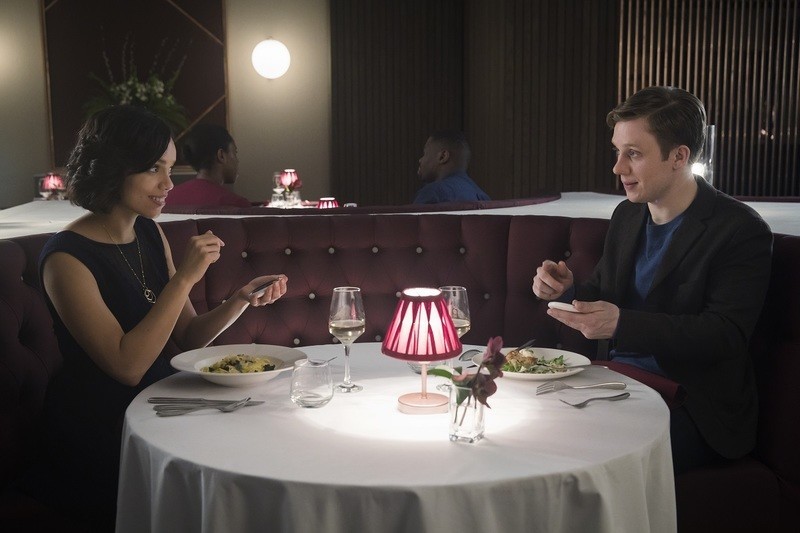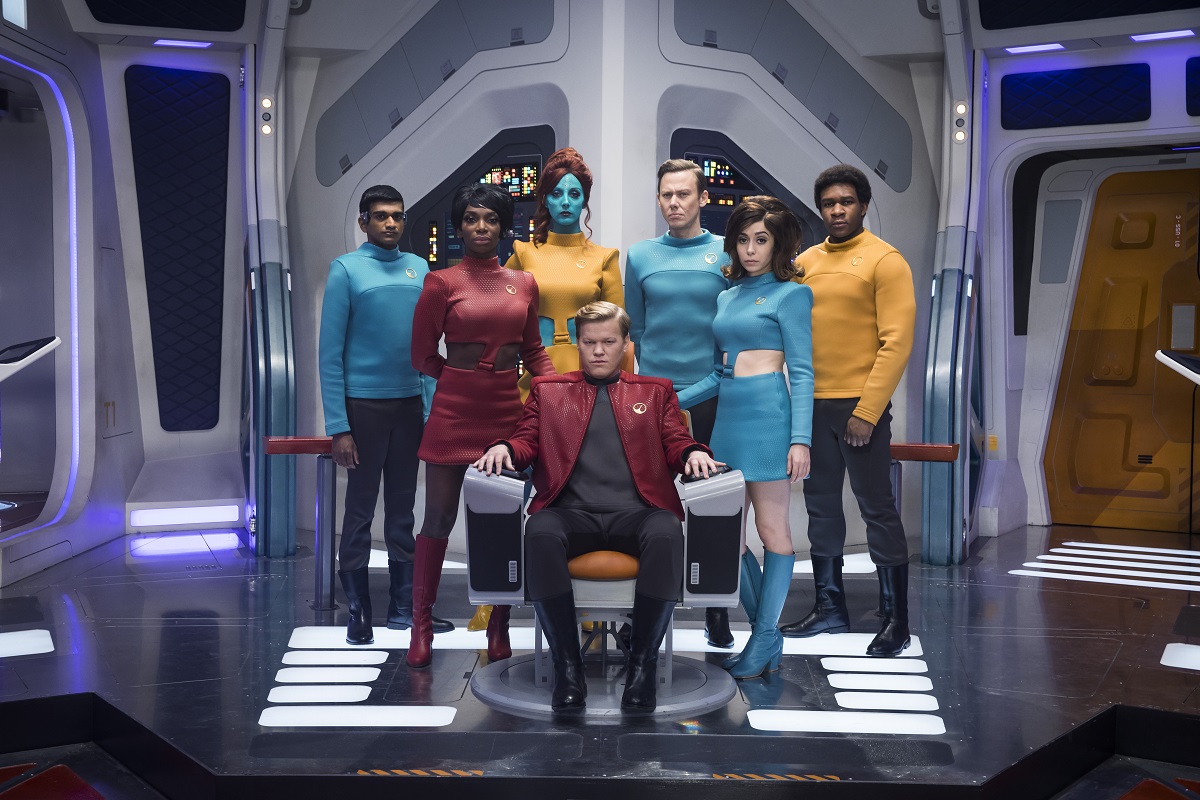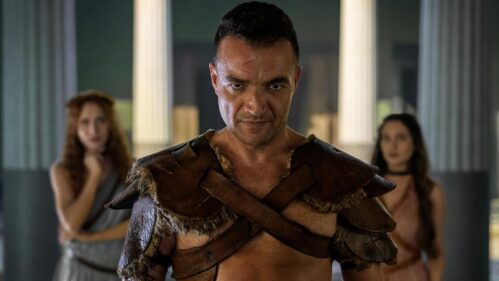Charlie Brooker and the team behind the beloved “Black Mirror” are back with six more mini-movies for you to binge just in time for the New Year. In a sense, these are the perfect final note for a year in which many people felt trapped, addicted to technology, and unsure of their place in the world. More than ever before, “Black Mirror” seems like it’s commenting on today as much as it is the future, and Brooker’s focus has switched from purely cautionary tales about technology to a discussion of human limitations that aren’t corrected by tech but enabled by it. As we have learned over and over again, technology does not always play into the best human instincts—in fact, it often amplifies a person’s worst qualities. This feels like a throughline for the fourth season of “Black Mirror,” one that’s filled with more sorrow, regret, and grief than ever before, and one that includes multiple episodes in which people are literally trapped in technological nightmares. Brooker is saying that if we’re not careful, we’ll get stuck too.
Having noted that, this is, as a whole, the least satisfying season of “Black Mirror” so far. Unlike last season, which had at least two notable peaks (“Nosedive” and “San Junipero”), season four has only one real high, and it’s somewhat telling that it’s the episode that feels the least like a chapter of “Black Mirror.” Too many other times, it seems like Brooker is spinning through themes he’s handled more successfully in the past, especially in the atrocious finale, “Black’s Museum,” an episode that is almost self-consciously a compendium of ideas Brooker couldn’t develop into full-length chapters of his show, and which ends the season on such a dour, cynical note. Other episodes have great performances—the always-welcome Rosemarie DeWitt and Andrea Riseborough deliver—but are hampered by weaker-than-average scripts that hammer their themes home like children with a square peg and a round hole. When the Jodie Foster-directed “ArkAngel” opened with a shot of a child being born, I actually said aloud: “What tech shit is going to kill this kid now?” That “ArkAngel” doesn’t quite go in that direction is laudable, but it is telling that a show that has thrived on unpredictability has become, well, predictable in its dour cynicism. This could be why the best episodes of season four are tonal surprises, the clever satire of “USS Callister” and the winning romance of “Hang the DJ.” I wouldn’t necessarily call them “hopeful,” but they feel the most complete and thought through in ways that aren’t just “man, technology is gonna fuck us.”

As I realize some people may not have a full six hours this weekend, how I’d rank the six new episodes, with very minimal spoilers:
1. “USS Callister”
The great Jesse Plemons reunites with his “Fargo” co-star Cristin Milioti and “Westworld”’s Jimmi Simpson in this truly stellar chapter, the only one this season that stands next to the best of “Black Mirror” in the past. Plemons gets to do a riff on William Shatner in what first feels like a spoof of “Star Trek” in its original TV series form but becomes much more than that when its construction is revealed. This one’s turns are the most rewarding, so I won’t ruin them, but know that this episode is about playing God and the cruelty that can engender—a clever theme to explore through the lens of the “Star Trek” universe. It’s very smart, funny, and scary in equal measure. I love it.
2. “Hang the DJ”
TV veteran director Tim Van Patten (“Boardwalk Empire,” “The Sopranos”) finds the right tone and rhythm for this tale of modern dating in a world in which you know exactly how long each relationship is going to last. Imagine if you were set-up with someone and knew you were only going to know them for another 12 or 24 hours? Would it free you up sexually? Imagine the opposite and you’re paired with someone you can’t really stand but your “coach” says you have to stay with them for a year? The idea is that a system is reading how you deal with each of these relationships and finding a perfect match for “Pairing Day.” That the system reportedly has a 99.8% success rate doesn’t make it any more tolerable for a pair of star-crossed lovers.
3/4. “ArkAngel” & “Crocodile”
My next two are relatively equal in that both have excellent performances but are hampered by blunt storytelling. In Foster’s “ArkAngel,” DeWitt plays an over-protective mother who implants a chip in her daughter’s head that not only allows her to see through her eyes but censor the world around her. Don’t want your daughter to ever see blood or porn? This will blur it out like a network news broadcast. Of course, this kind of overprotectiveness can only lead to horror. And “ArkAngel” doesn’t have enough story to justify its length despite DeWitt’s great performance. Same goes for “Crocodile,” which features the great Andrea Riseborough in an old-fashioned tale of murder begetting murder. On a drive after a night of clubbing, she’s in a car that hits a bike rider. They cover up the murder, but her accomplice has doubts years later. Things get worse from there, especially when an insurance investigator who can tap into memories gets involved. Director John Hillcoat (“The Road”) adds some style, but it’s ultimately a too-predictable dirge.
5. “Metalhead”
David Slade (“Hard Candy”) helms this ambitiously unusual but ultimately numbing sci-fi action episode. A trio of people break into a warehouse to steal something but are hunted by a vicious metal dog that shoots trackers like shrapnel from a mine and can blow heads clear off. It’s black and white and largely silent—two impressive feats in modern TV. It’s also boring and mostly forgettable.
6. “Black’s Museum”
Possibly the worst “Black Mirror” episode yet is an anthology within an anthology in a sense as a proprietor of a “crime museum” tells his only guest some stories about the items held there. Twist on twist on twist—it feels like Brooker is commenting on his own show (look at the title of the episode and location) but there’s not enough there beyond it. And the end is dark and ugly. Skip it.












